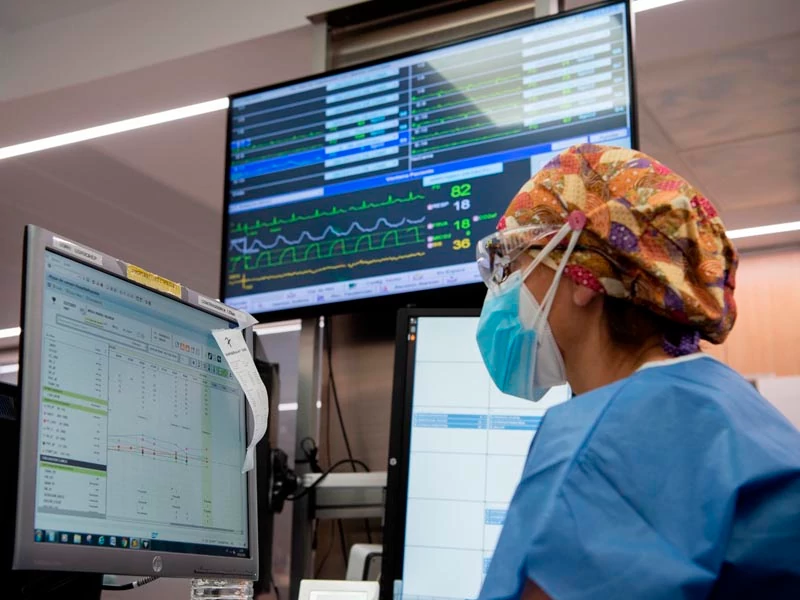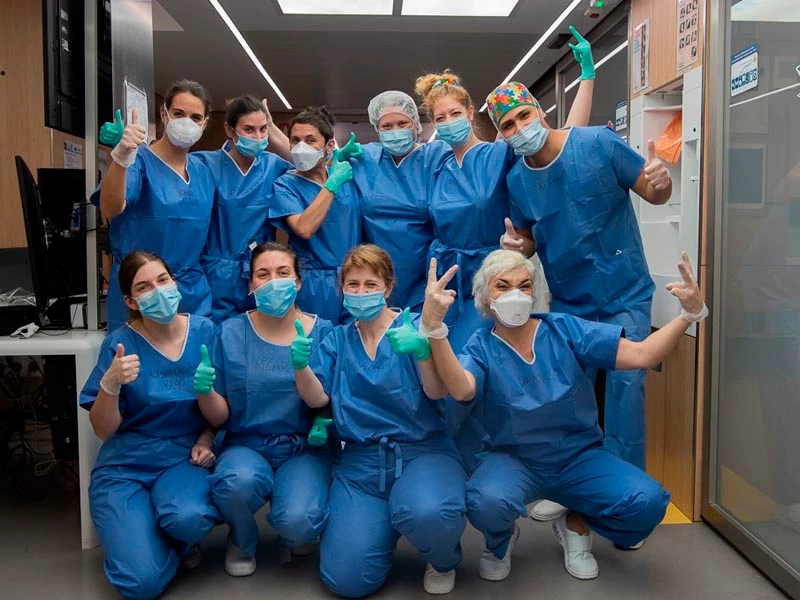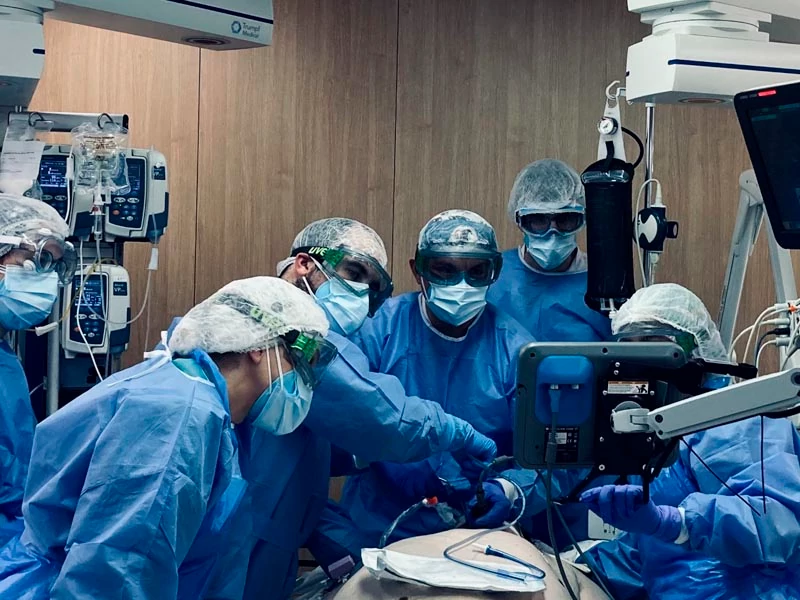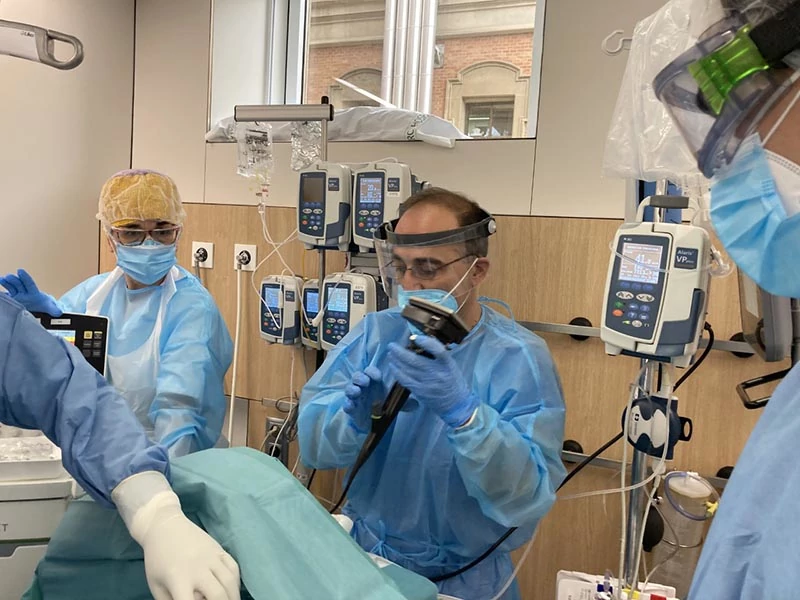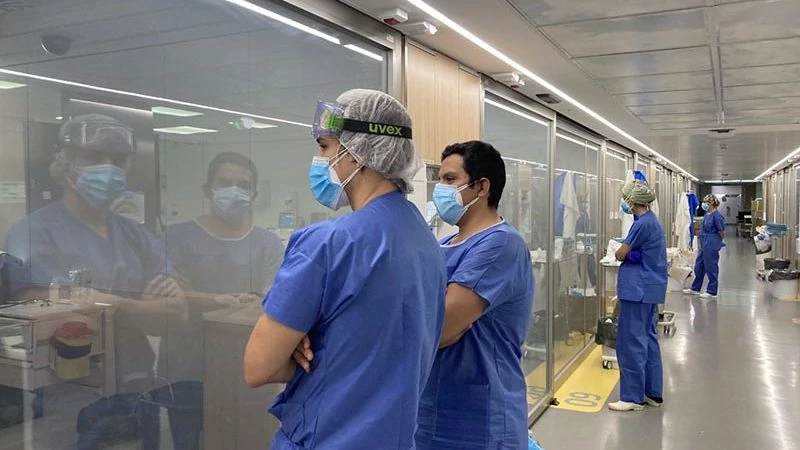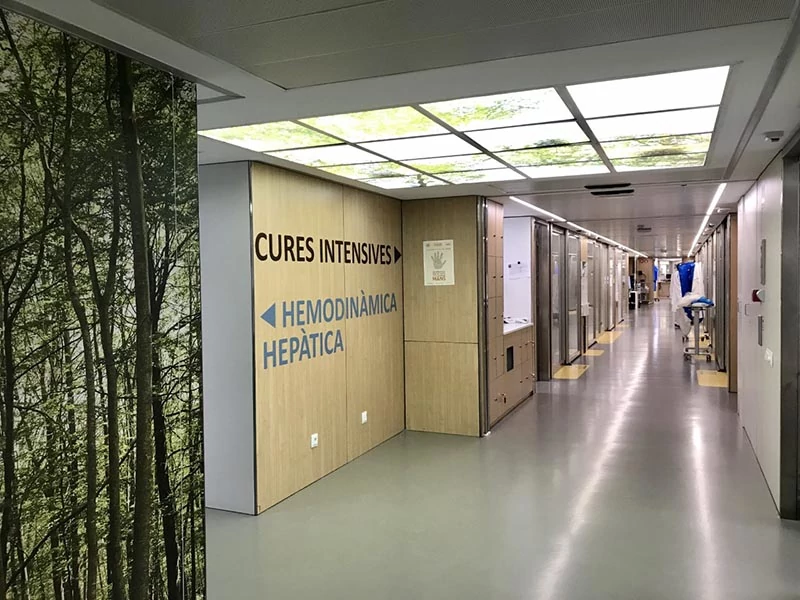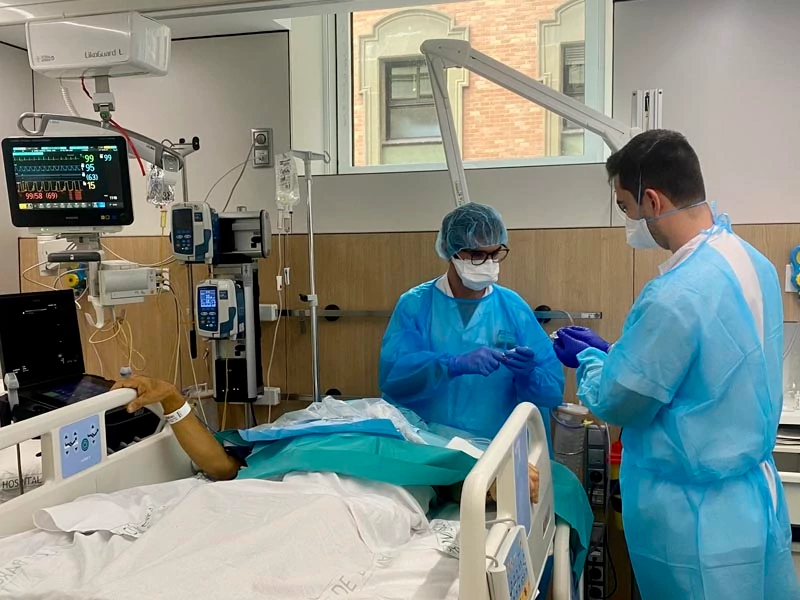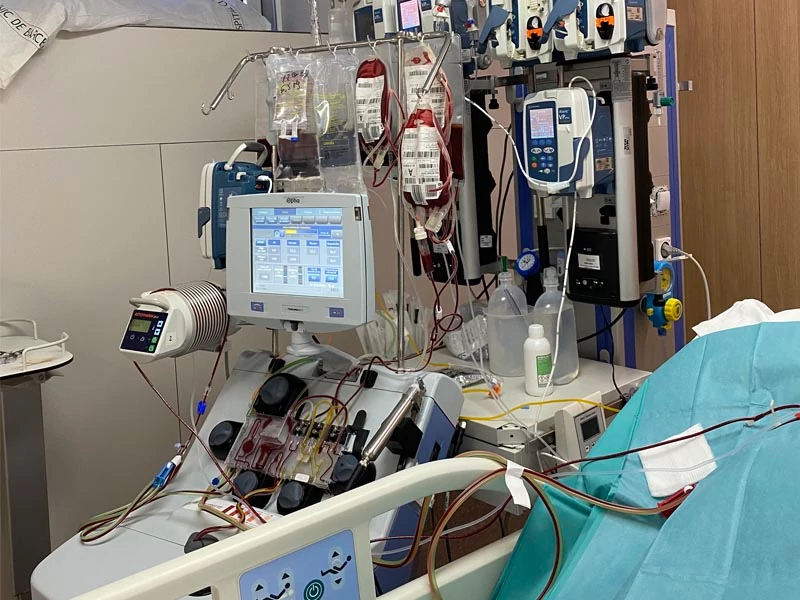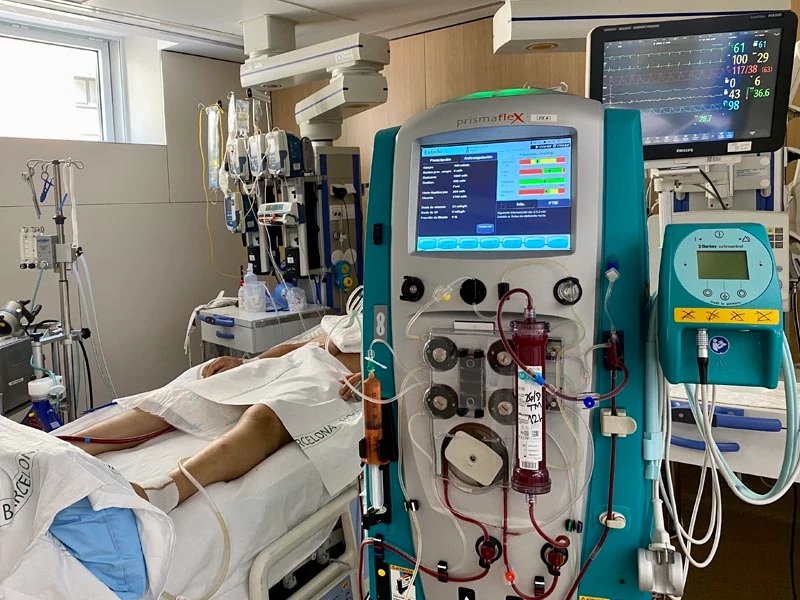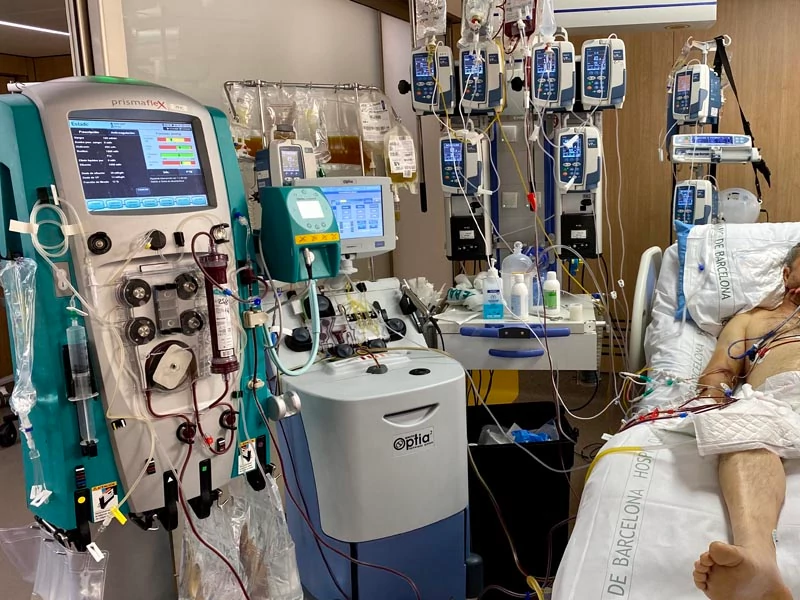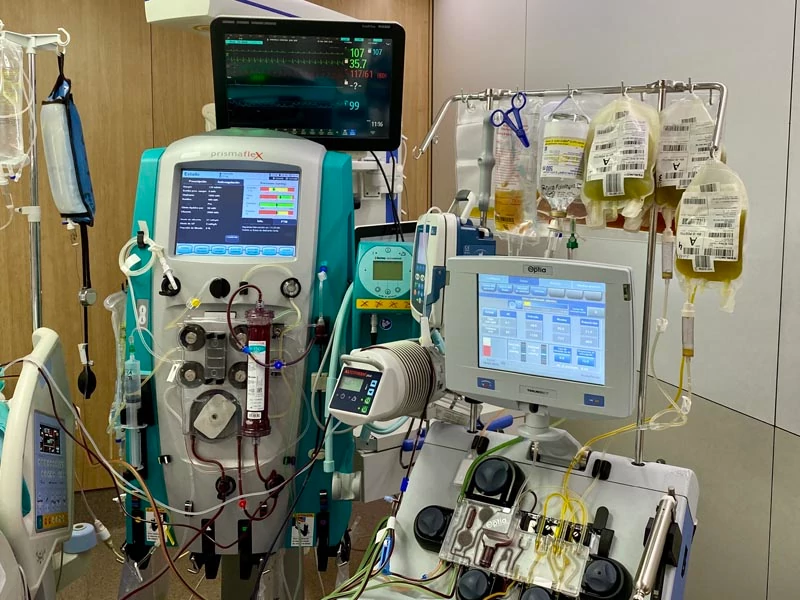Fundamentals in Critical Hepatology
Multidisciplinary course, aimed at specialist doctors






In recent years, hepatology has experienced significant development, covering the specific management of various pathologies such as acute-on-chronic liver failure, acute liver failure, and digestive bleeding from esophageal varices,, among others. The evolution of intensive care, driven by advanced technology and emerging scientific evidence, has highlighted the need for specialized training in managing these pathologies, especially in Critical or Semi-Critical Care Units.
The Faculty of Medicine and Health Sciences at the University of Barcelona offers the postgraduate program in Fundamentals of Critical Hepatology through the Master's 'Critical Care and Emergencies'. This is a 30 ECTS credit on-site postgraduate program aimed at acquiring theoretical and practical knowledge to care for patients with critical liver pathology.
The postgraduate program is aimed at intensivists, hepatologists, anesthesiologists, internists, and general practitioners seeking to acquire advanced skills in the diagnostic and therapeutic management of critical liver patients, as well as in the treatment of other conditions affecting patients with digestive diseases, both surgical and non-surgical, including the management of patients undergoing liver transplantation.
The course covers in depth all aspects related to pathophysiology, clinical manifestations, monitoring, therapeutic interventions, and follow-up in various pathologies that can affect a critical liver patient. The teaching content is delivered in a hybrid format, combining online and on-site sessions, seminar presentations, along with tutorial support and in-person evaluations.
Tuition fee: 2.800€ + 70 fees. Includes qualification of Postgraduate Diploma / Specialization from the University of Barcelona.
Access Requirements
Holders of a bachelor's, diploma, and/or degree in Medicine or Nursing
Methodology and educational resources
Theoretical lessons: acquire knowledge in critical patient care from experts in on-site and online formats.
Virtual campus: interact with content, professors, and additional resources on the virtual campus platform.
Practical lessons: Clinical rotation of 3 months during the academic year in the hepatic ICU. During this period, participants will be actively involved in patient rounds. They will participate in diagnostic and therapeutic discussions and decisions for all patients admitted to the unit, gaining direct practical experience in managing critical cases.
Clinical practices: Attendance at regular scientific sessions of the Hepatology service (once a week) and the ICU (every 15 days). Participation in the teaching sessions of the Critical Patient Working Group.Performing various techniques by the applicant, always with the support and supervision of the unit's medical staff.
Book Critically Ill Patient and Emergencies: The book Critically Ill Patient and Emergencies (2nd ed. Elsevier 2020) is the educational resource written by the postgraduate instructors. Each enrolled student will receive a copy.
Teaching content
- Management of severe acute liver failure
- Comprehensive approach and advanced treatments for patients with severe acute liver failure.
- Management of cirrhosis complications:
- – Digestive bleeding from varices: Techniques for control and management of variceal bleeding.
- – Hepatorenal syndrome: Diagnosis and therapeutic management.
- – Refractory ascites: Strategies for managing ascites that does not respond to conventional treatments.
- – Hepatic encephalopathy: Diagnosis and management of encephalopathy in cirrhotic patients.
- – Bacterial infections in cirrhosis and septic shock: Management of infections and sepsis in cirrhotic patients.
- Management of acute-on-chronic liver failure (ACLF)
- – Approaches and treatments for managing acute liver failure on a chronic liver disease background.
- Management of liver transplantation.
- – Immediate postoperative care: Intensive care and monitoring in the early postoperative phases.
- – Immunosuppression in transplantation: Strategies and management of immunosuppressive therapy.
- – Infections in transplantation: Prophylaxis and treatment of infections in transplanted patients.
- – Coagulation in the immediate postoperative period: Management of coagulation in the early post-transplant phases.
- – Vascular complications: Diagnosis and treatment of post-transplant vascular complications.
- Non-invasive and invasive hemodynamic monitoring.
- Non-invasive and invasive mechanical ventilation.
- Liver support systems.
- Renal support techniques.
- Management of digestive bleeding not due to portal hypertension:
- Self-expanding metal esophageal stents
Monitoring and evaluation systems
- Through theoretical concepts assessment via a multiple-choice test examination.
- Evaluation of practical aspects through a clinical case.
- Through attendance at theoretical classes, practical sessions, and scientific sessions of the program.
Coordination
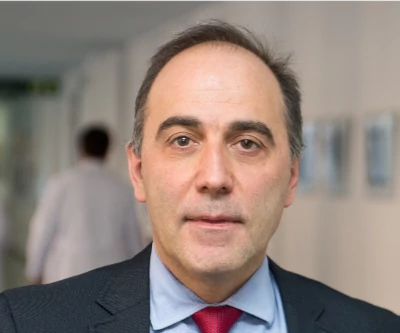
Dr. Javier Fernández Hepatologist, head of the Hepatic ICU at Hospital Clínic. Doctor in Medicine. Associate professor, University of Barcelona.
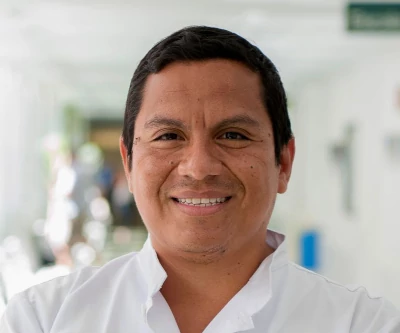
Dr. David Toapanta Intensive care physician at the Hepatic ICU of Hospital Clínic. Associate professor, University of Barcelona.
Frequently asked questions.
What price and payment options are available?
The enrollment fee is 2.800 € + 70€ fees. Once admitted, the student must complete the Pre-enrollment and pay 800€. The remainder of the postgraduate cost (2.000€ +70€ fees) will be paid upon Enrollment, with the possibility of doing so in two installments: The first in the month of October, 1.000€ + 70€ And the second in the month of January 1.000€
The following payment methods are available:
- Online payment: By credit or debit card.
- Payment at the offices of collaborating banks: print the pre-registration receipt and make the payment.
- By invoice: Must be requested from the Postgraduate Secretariat before starting the enrollment process and before paying the pre-registration fee.
What recognition does the Postgraduate degree have?
- This Postgraduate degree awards a Diploma of Specialization from the University of Barcelona. It is permanent training, delivered as ECTS credits, and has a professionalizing character.
- The value recognized for a Postgraduate degree depends on the acquired competencies and the need of companies to incorporate these professionals.
What documentation do I need to submit?
Pre-registered applicants must provide the following information:
Applicants with Spanish and EU degrees:
- Photocopy of the National Identity Document or Passport.
- Certified copy of the university degree (both sides).
Applicants with recognized foreign degrees:
- Certified copy of Passport or identity document.
- Certified copy of the university degree or a certificate accrediting its issuance.
- Certified copy or electronic verification of the document accrediting the homologation of the degree.
Applicants with non-recognized foreign degrees:
- Copy of Passport or Identity Document.
- Certified copy of the university degree or a certificate accrediting its issuance (original or certified copy or authentic copy with a secure verification code).
- Duly completed authorization request: Link to Document.
- Responsible declaration stating possession of the submitted degree, that the information provided is true, and authorizing verification if necessary: See model.
Applicants who ultimately provide an uncertified or unverified university degree:
- Copy of Passport or Identity Document.
- Photocopy of the University Degree or the studies they are currently pursuing.
- Responsible declaration stating possession of the submitted degree, that the information provided is true, and authorizing verification if necessary: See model.
- If the student does not provide the university degree with the official certification or verification of its issuance, the postgraduate qualification awarded will be a Diploma of University Extension.

